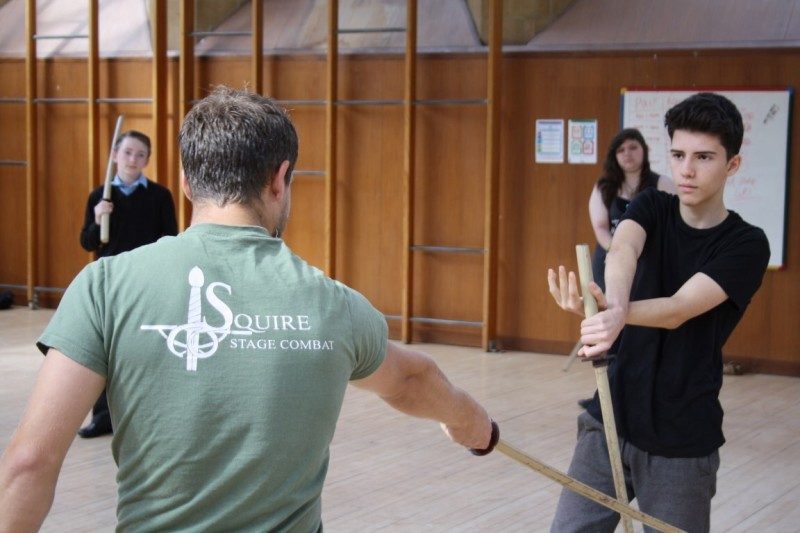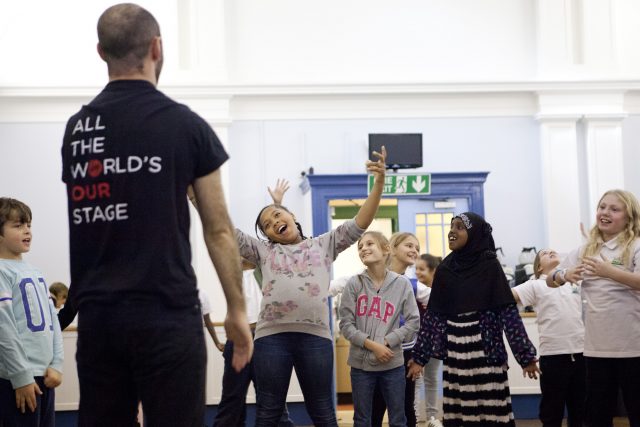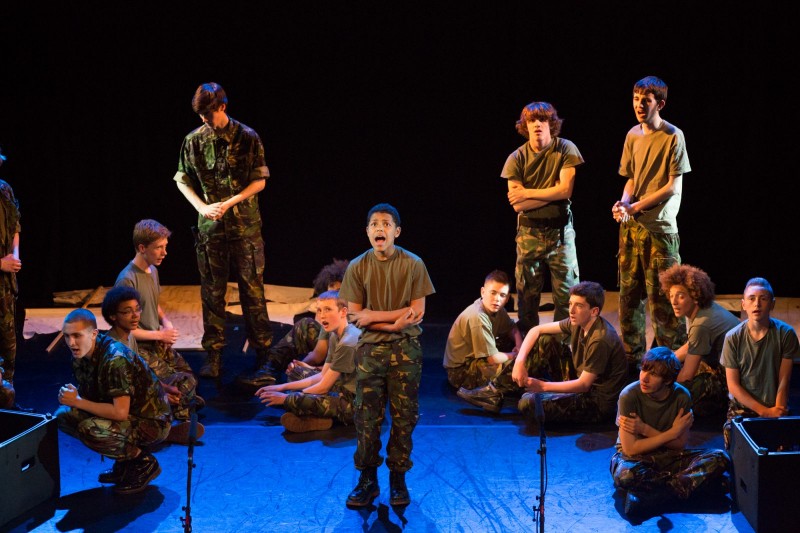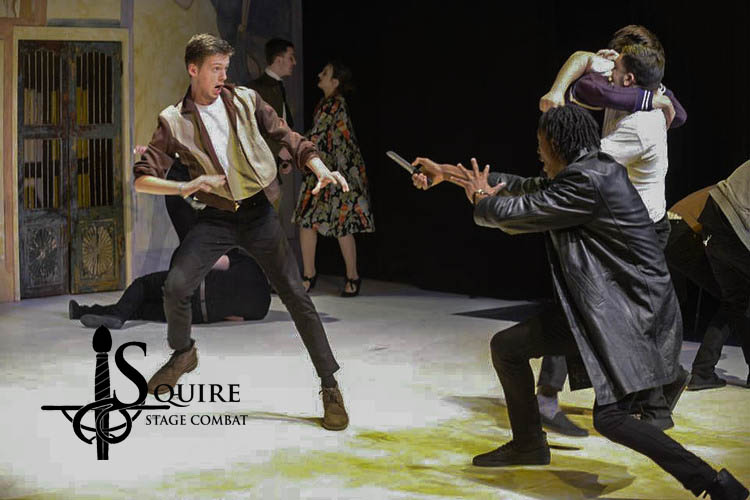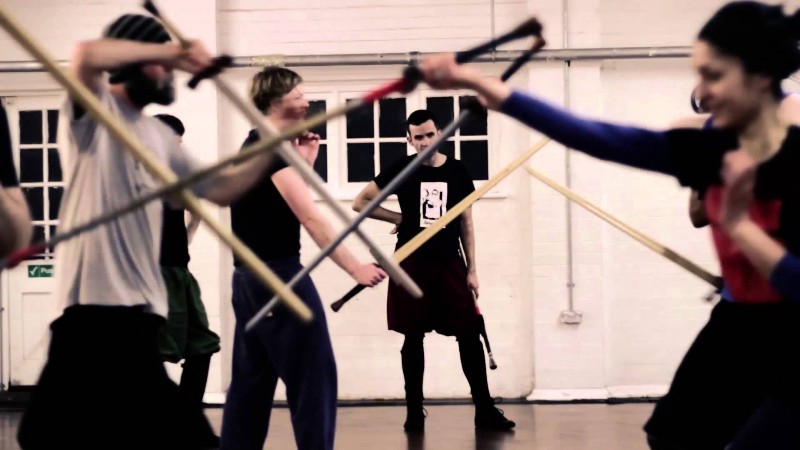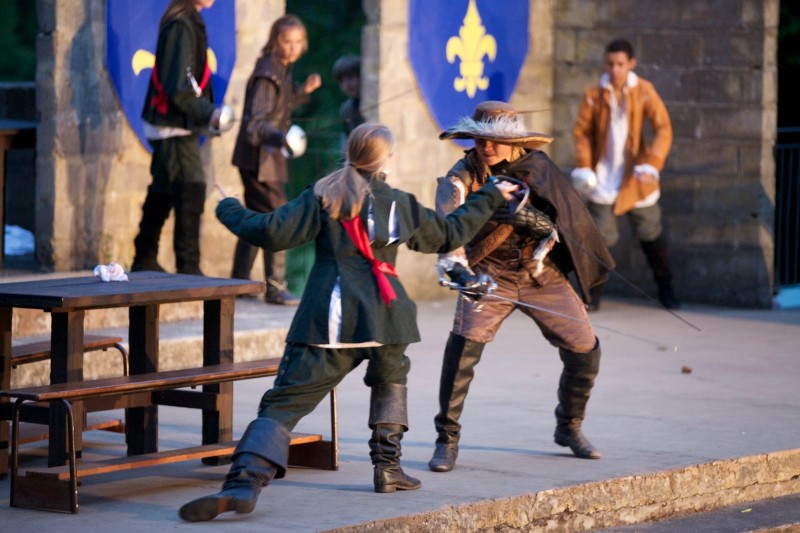My Voice is in My Sword: Shakespeare Through Combat
Workshop Category: CPD, Dance, Drama and Theatre, Gifted and Talented, Holiday clubs, Shakespeare, Stage Combat, Talking and Communicating, and World Book Day
Need to excite your students about Shakespeare? Or maybe you just need a fresh approach to an old study text? The Shakespeare Schools festival and Squire Stage Combat have produced this Shakespeare workshop to explore it in a practical way. Taking the scenes off the page and onto the stage where they belong. The workshop can be run as a half day (3 hours) or a full day master class. It consists of both text based classroom work and practical performance.
Shakespeare is responsible for some of the greatest plays ever written and by proxy some of the greatest fights. In fact most of Shakespeare’s actors were master fencers who insisted on adding as many fights as possible to every performance as a way of showing off their skills. It is even argued that the first recorded Fight Director in the world was Richard Tarlton, Shakespeare’s lead actor until 1588. As a member of the prestigious London Masters of Defence Guild, it was Tarlton who first gave us the timeless duels of Romeo and Tybalt, Macbeth and Macduff and of course Hamlet and Laertes.
Stage combat by its very nature is physically active and requires practical solutions to creative problems. By studying the fights practically, students are encouraged to perform Shakespearean text and gain a greater understanding the plays and their staging.
The workshop covers basic stage combat skills (armed or unarmed dependant on a client’s preference). These are then utilised in a staging of a Shakespearean text related to the students current area of study. How do we deal with text in a fight? What can a fight tell us about the rest of the play? What is the context of this fight? What are the weapons and fighting styles like? How would these fights have been performed in Shakespeare’s day?
In a full day session the workshop can progress to the use of more complex weapons and techniques allowing for the creation of a fully realised staging of a scene which can be performed and recorded.
Prior to the combat workshop leaders from The Shakespeare Schools Festival will provide expert guidance related to the interpretation and performance of the text. The is no point getting up to fight unless the students understand why they are doing so and have confidence in how to approach the scene as a whole. The introductory workshop will help students explore the important elements of the scene, understanding the language, relationships and plot. The purpose of which is to familiarise them with the scenes and make them confident in performing the script. This is essential before they even throw a punch or pick up a sword.
(A version of this workshop is available for Primary students and is tailored to fit their ability. Primary students are encouraged to explore unarmed stage combat. Squire is happy to discuss the option of a weapon system but practicality may prevent smaller students handing weaponry.)
“This was a wonderful experience. The team were great to work with as they were flexible and really understood the needs of our young people. All children were included and the experience was very good for sensory needs as well as higher abilities.”
Staff member, Queensmill School
London
Greater London
United Kingdom

